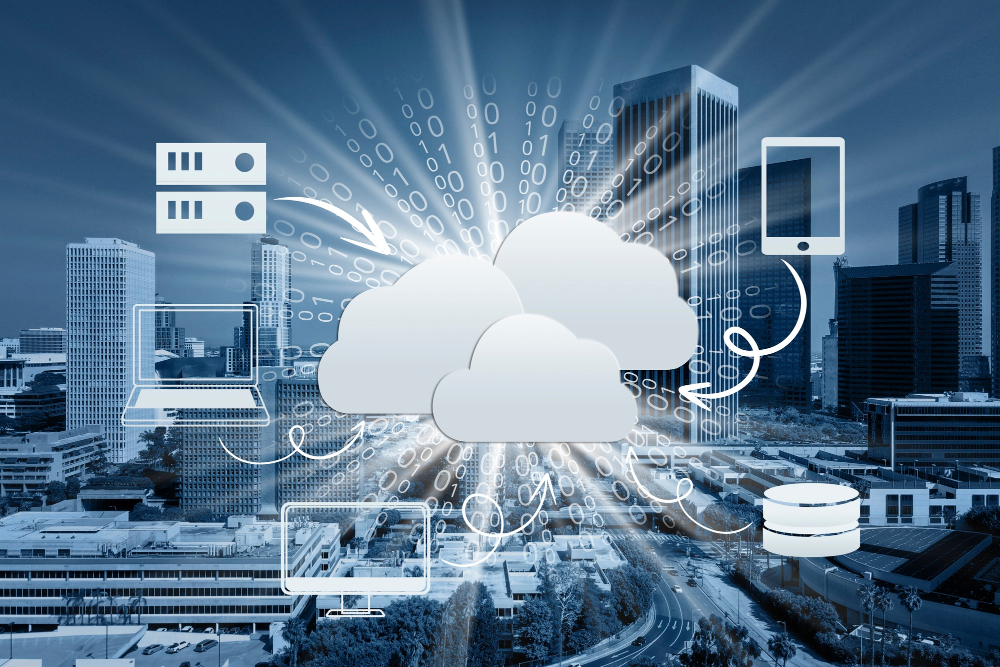
Edge computing is a revolutionary technology that brings computing power closer to where data is generated. This means that instead of sending all data to a centralized cloud server for processing, some of the processing can be done at the “edge” of the network, closer to where the data is being collected. This has a number of benefits, one of the most important being the improvement in data processing speed.
One way that edge computing improves data processing speed is by reducing latency. Latency refers to the delay between when data is sent to a server for processing and when the processed data is returned. By processing data closer to where it is generated, edge computing reduces the distance that data has to travel, which in turn reduces latency and speeds up data processing.
Another way that edge computing improves data processing speed is by reducing the amount of data that needs to be sent to the cloud for processing. With edge computing, some of the processing can be done locally, which means that only the most important or relevant data needs to be sent to the cloud. This reduces the amount of data that needs to be transferred, which in turn speeds up data processing.
Edge computing also helps improve data processing speed by enabling real-time data analysis. With edge computing, data can be processed and analyzed as soon as it is generated, allowing for real-time insights and decisions to be made. This is particularly useful in industries such as healthcare, manufacturing, and transportation, where real-time data analysis can have a significant impact on operations.
Edge computing improves data processing speed by reducing the strain on the centralized cloud servers. By offloading some of the processing to edge devices, edge computing helps distribute the workload more evenly across the network, reducing the burden on cloud servers and speeding up data processing overall.
In addition, edge computing also improves data processing speed by enabling edge devices to make autonomous decisions. With edge computing, edge devices can process and analyze data locally, without needing to constantly send data back and forth to the cloud. This allows for faster decision-making and reduces the reliance on the cloud for processing.
Edge computing improves data processing speed by enabling edge devices to filter and preprocess data before sending it to the cloud. By processing and analyzing data locally, edge devices can filter out unnecessary or redundant data, ensuring that only the most important data is sent to the cloud for further processing. This not only speeds up data processing but also helps reduce bandwidth and storage costs.
With edge computing, edge devices have the ability to process and analyze data locally, without needing a constant connection to the cloud. This ensures that data processing can continue uninterrupted, even in the event of connectivity issues.
Edge computing improves data processing speed by enabling edge devices to leverage machine learning and artificial intelligence algorithms locally. By processing data at the edge, edge devices can take advantage of on-device machine learning and AI capabilities, allowing for faster and more efficient data processing. This is particularly useful in applications that require real-time decision-making, such as autonomous vehicles or IoT devices.
Edge computing improves data processing speed by enabling edge devices to work in concert with cloud servers in a hybrid computing model. With edge computing, edge devices can handle some of the processing locally, while more intensive processing can be offloaded to the cloud servers. This hybrid approach allows for a balance between local and cloud-based processing, optimizing data processing speed and efficiency.
Edge computing offers a number of advantages when it comes to improving data processing speed. By processing data closer to where it is generated, reducing latency, offloading processing to edge devices, enabling real-time analysis, and leveraging machine learning and AI capabilities, edge computing can significantly enhance data processing speed and efficiency in a wide range of applications and industries.